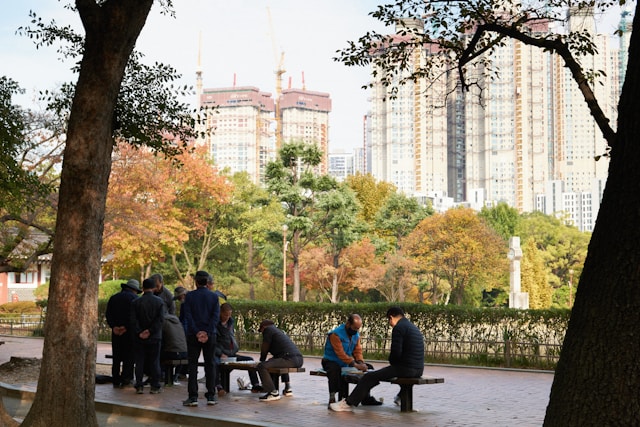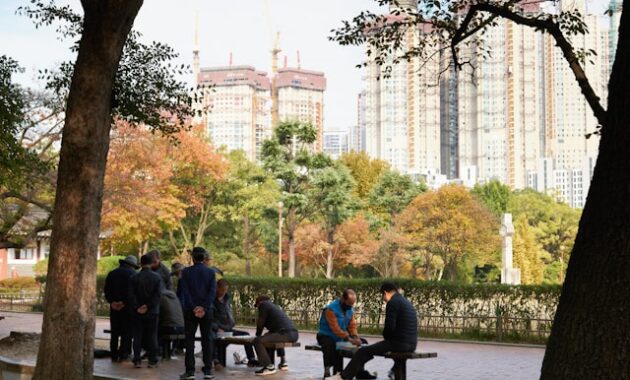
South Korea is a country where the past and present seamlessly blend, offering a treasure trove of historical and cultural landmarks. Among its cities, Busan and Daegu stand out as vibrant hubs rich in history, architecture, and heritage. Let us take you on a journey through these two cities, where every corner whispers tales of Korea’s storied past.
Busan’s Historical Marvels
1. Beomeosa Temple: A Sanctuary in the Mountains
Nestled on the slopes of Geumjeongsan Mountain, Beomeosa Temple is one of Korea’s most significant Buddhist temples. Founded in 678 AD during the Silla Dynasty, this temple showcases a perfect harmony of natural beauty and architectural elegance. Its intricate wooden pagodas, serene courtyards, and ancient stone lanterns provide a glimpse into Korea’s rich Buddhist traditions. Visitors can also experience templestay programs, immersing themselves in meditation and traditional Korean culture.
2. Gamcheon Culture Village: A Living Museum
Known as the “Machu Picchu of Busan,” the Gamcheon Culture Village combines art, history, and community. Originally a modest hillside settlement, it was transformed into a colorful haven of murals, sculptures, and cultural exhibits. Wander through narrow alleys to discover its vibrant history, rooted in the aftermath of the Korean War when refugees settled here.
3. Jagalchi Fish Market: A Historic Trade Hub
No trip to Busan is complete without visiting the Jagalchi Fish Market, the largest seafood market in Korea. Dating back to the Korean War era, this market is a testament to Busan’s maritime heritage. Stroll through bustling stalls offering fresh catches of the day, and indulge in traditional Korean seafood dishes for a truly authentic experience.
4. Taejongdae Resort Park: A Natural and Historical Haven
Named after King Taejong Muyeol of Silla, Taejongdae is a stunning natural park perched on Busan’s southern coast. Its historical significance lies in its ancient lookout points, once used to monitor incoming ships. Today, it offers breathtaking views, dense pine forests, and the iconic Yeongdo Lighthouse.
Daegu’s Timeless Treasures

1. Donghwasa Temple: A Legacy of Serenity
Located at the foot of Palgongsan Mountain, Donghwasa Temple is a masterpiece of Buddhist architecture. Established in 493 AD, this temple is home to the iconic Tongil Daebul Statue, one of the largest Buddha statues in South Korea. Visitors can marvel at its intricate carvings and tranquil ambiance while exploring centuries-old relics.
2. Daegu Yangnyeongsi: A Hub of Traditional Medicine
The Yangnyeongsi Herbal Medicine Market, established in 1658, is the oldest of its kind in Korea. It reflects Daegu’s historical role as a center for Korean traditional medicine. The market is lined with shops offering medicinal herbs, ginseng, and natural remedies, making it a fascinating destination for those interested in holistic health practices.
3. Gyesan Cathedral: A Symbol of Cultural Convergence
Built in 1902, Gyesan Cathedral stands as one of the oldest Catholic churches in Korea. Its Gothic-style architecture and stained-glass windows tell stories of Western influence during Korea’s modernization era. Located in Daegu’s heart, it is a peaceful retreat amidst the bustling cityscape.
4. Seomun Market: A Gateway to Daegu’s Past
With origins dating back to the Joseon Dynasty, Seomun Market is one of Korea’s oldest traditional markets. Known for its textiles, handicrafts, and delicious street food, it offers a nostalgic journey through Daegu’s commercial history. Don’t miss the chance to try nabjak mandu (flat dumplings), a local delicacy.
Sea More about Korea.
Shared Legacies of Busan and Daegu
1. The Korean War’s Impact
Both Busan and Daegu played pivotal roles during the Korean War. Busan served as a temporary capital, hosting refugees and government officials, while Daegu became a logistics hub. Today, museums and monuments in both cities commemorate this turbulent yet transformative era.
2. Preservation of Traditional Crafts
Busan’s Bosu Book Street and Daegu’s Bangjja Yugi Museum highlight their dedication to preserving traditional crafts. Bosu Book Street is a haven for antique book collectors, while the Bangjja Yugi Museum celebrates the art of bronzeware crafting, a UNESCO-recognized cultural heritage.
Exploring Beyond the Landmarks
While the landmarks are awe-inspiring, the essence of Busan and Daegu lies in their vibrant communities, festivals, and cuisines. Whether you’re savoring Busan’s fresh seafood or exploring Daegu’s culinary delights like spicy tteokbokki, every experience connects you to Korea’s rich cultural tapestry.
Pro Tip: To make the most of your visit, consider planning your trip during local festivals like the Busan International Film Festival or Daegu’s Yangnyeongsi Herbal Medicine Festival for an immersive cultural experience.